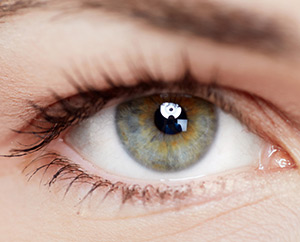Looking to Lutein for Better Vision

Lutein’s special role in vision
Lutein is a member of the carotene family, a group of phytonutrients found in colourful fruits and vegetables. It turns out that lutein, and its closely related cousin zeaxanthin, accumulate in a part of the eye called the macula. A healthy macula is necessary for good vision.
Researchers randomly selected 120 healthy adults to receive a daily 20 mg lutein supplement or a placebo for one year. The participants were 25 to 47 years old, and all averaged at least ten hours of driving per day. Lutein from food sources, vision-related quality of life, visual acuity, blood lutein levels, and optical density of macular pigment—a measure of how much lutein has collected in the macula—were measured before, during, and after the study. Compared with the placebo group, the people who received daily lutein supplements experienced significant improvements and increases in these markers:
- Optical density of macular pigment
- Blood lutein levels
- Contrast and glare sensitivity (a possible benefit for driving at night or in low light)
- National Eye Institute Visual Functioning Questionnaire scores
Vision preservation plan
A lutein supplement may protect and improve the vision of people who regularly drive for long periods of time. The study was small, and we don’t yet know if the results will apply to people who don’t drive for a living. Still, it points to the importance of lutein for visual health. Use our tips to develop your own vision preservation plan:
- Protect your peepers. Shield your eyes from the sun’s damaging ultraviolet (UV) radiation. Wear UV blocking sunglasses in bright sunlight, and even on bright, cloudy days—UV radiation penetrates clouds.
- Eat your lutein. Just 1 cup of cooked spinach provides 30 mg of lutein, and 1 cup of cooked kale yields 26 mg. Just one to two, ½ cup daily servings of these green leafy foods will bring your lutein intake close to, or beyond, the amount of lutein supplemented in the study.
- Eye an examination. Your family physician likely doesn’t perform regular eye health tests. Schedule separate eye examinations with an ophthalmologist or optometrist. This is especially important for people who don’t wear glasses or contacts, and may never have had an eye examination. Many health conditions affecting the eyes are treatable, if caught early.
- Tackle total health. The eyes may or may not be the windows to the soul, but they definitely are windows into your health. Habits that ward off chronic disease—heart disease, diabetes, stroke, and cancer—also protect vision. Be physically active every day, and eat plenty of vegetables, fruit, nuts, seeds, and whole grains. Also feast on fatty fish; the healthy omega-3 fats in fish are important for healthy eyes.
(Nutrition 2013, doi:http://dx.doi.org/10.1016/j.nut.2012.10.017)
Copyright © 2024 TraceGains, Inc. All rights reserved.



 Lehmann&Voss&Co. and the LEHVOSS Group will be presenting their range of high-quality minerals at Food...
Lehmann&Voss&Co. and the LEHVOSS Group will be presenting their range of high-quality minerals at Food...  We are pleased to announce our new partnership with Zooca® The Calanus® Company for
We are pleased to announce our new partnership with Zooca® The Calanus® Company for 
 Calcium is well-known for its health benefits, especially for athletes and active individuals....
Calcium is well-known for its health benefits, especially for athletes and active individuals....  New
New 






































